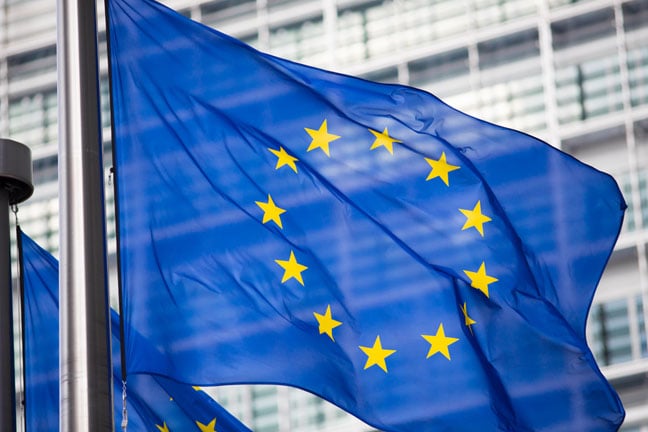Intel Finds A Friend In Fight Against $1.2B EU Antitrust Fine

An advisor to Europe’s General Court has torn into the legal logic behind the EU's €1.06 billion ($1.2 billion) antitrust fine levelled against chip giant Intel.
Intel has fought the fine, which was imposed by the European Commission (EC) in 2009 over rebates awarded to major computer makers, including Dell, HP, and Lenovo, in exchange for prioritizing its Chipzilla’s CPUs over AMD’s.
In 2014 the General Court dismissed Intel's attempt to escape the fine. A subsequent appeal to the European Court of Justice saw that tribunal, Europe’s mightiest, send the case back to the General Court for reconsideration in 2017.
In January 2022, the General Court reached a new conclusion, calling the Commission’s analysis incomplete and arguing it failed to establish a legal standard that the "rebates at issue were capable of having, or were likely to have, anticompetitive effects."
The EC obviously wasn't happy with this ruling and quickly launched an appeal of their own. However, Court of Justice advocate general Laila Medina took issue with some of the arguments raised by the Commission in its latest attempt to hold Intel accountable for what it sees as an abuse of market position.
The advocate general's job is to serve as an independent voice that proposes impartial advice as to how the General Court should proceed.
In the opinion [PDF] Media skewered the Commission’s arguments that the General Court erred in its assessment of Intel's dealings with HP and non-cash advances provided to Lenovo in exchange for exclusive use of its CPUs. In the first case, Medina concluded that the Commission failed to adequately support the claims. And, with regard to Lenovo, the advocate general affirmed the General Courts 2022 findings, which took issue with Commission's application of the as-efficient-competitor (AEC) test.
The test is a framework for establishing to what extent certain business practices, like rebates, are harmful to competition. According to Medina, "the court should confirm that the Commission erred in applying the AEC test with respect to HP and Lenovo."
- BT to spell out contract price hikes in pounds and pence
- Why Google is waiving egress fees for disgruntled customers ditching GCP
- Europe's monopoly cops suddenly rather curious about Microsoft's $13B for OpenAI
- Biden urged to do something about Europe 'unfairly' targeting American tech
While Medina's opinion doesn't bode well for Brussels’ antitrust case against Intel, it is non-binding: the General Court can take it or leave it. It's also worth noting that Medina's opinion only addresses two of six grounds for appeal raised by the Commission.
Intel may not get away entirely unscathed either. The Commission early last fall hedged its bets against Intel, re-imposing a fine of €376.36 million (about $400 million) on the basis that the General Court had found Intel's use of rebates amounted to abuse of market dominance. ®
From Chip War To Cloud War: The Next Frontier In Global Tech Competition
The global chip war, characterized by intense competition among nations and corporations for supremacy in semiconductor ... Read more
The High Stakes Of Tech Regulation: Security Risks And Market Dynamics
The influence of tech giants in the global economy continues to grow, raising crucial questions about how to balance sec... Read more
The Tyranny Of Instagram Interiors: Why It's Time To Break Free From Algorithm-Driven Aesthetics
Instagram has become a dominant force in shaping interior design trends, offering a seemingly endless stream of inspirat... Read more
The Data Crunch In AI: Strategies For Sustainability
Exploring solutions to the imminent exhaustion of internet data for AI training.As the artificial intelligence (AI) indu... Read more
Google Abandons Four-Year Effort To Remove Cookies From Chrome Browser
After four years of dedicated effort, Google has decided to abandon its plan to remove third-party cookies from its Chro... Read more
LinkedIn Embraces AI And Gamification To Drive User Engagement And Revenue
In an effort to tackle slowing revenue growth and enhance user engagement, LinkedIn is turning to artificial intelligenc... Read more

